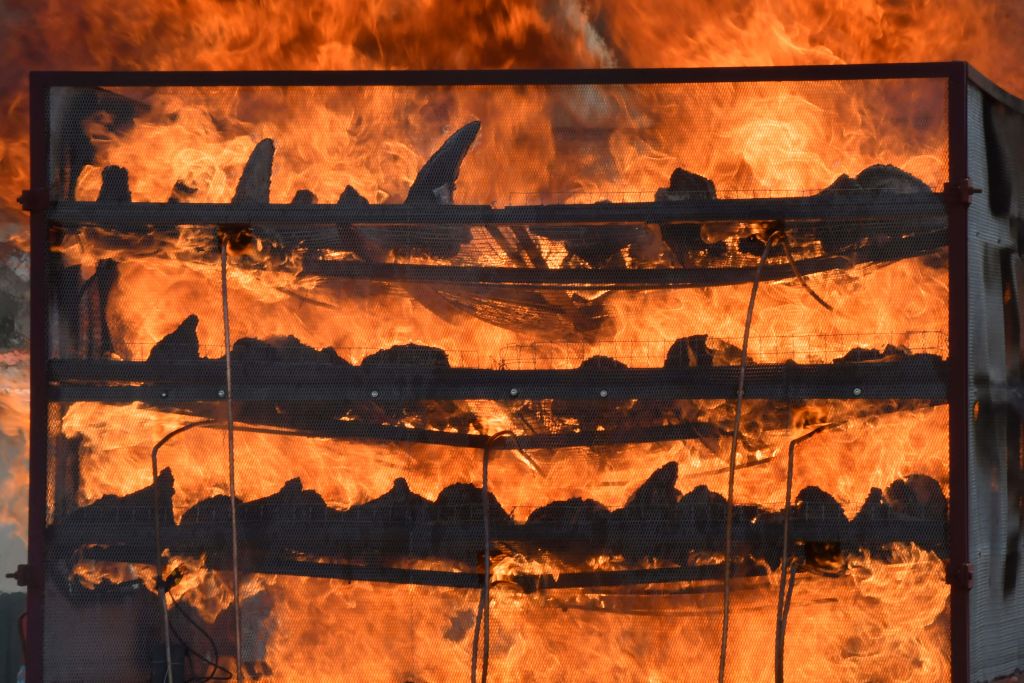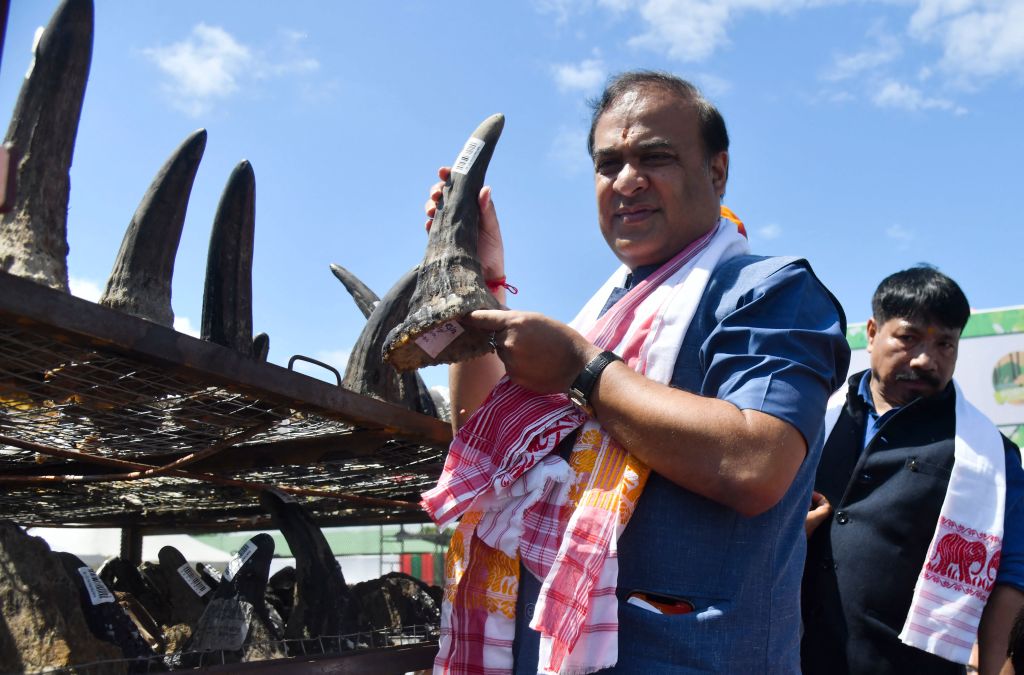- Saturday, April 27, 2024

By: Shubham Ghosh
AUTHORITIES in the north-eastern Indian state of Assam on Wednesday (22) burnt 2,479 horns of the rhinoceros to bust a myth that they have miraculous medical properties. The move is part of an effort by Himanta Biswa Sarma, the state’s chief minister, to reduce poaching of the endangered one-horned Indian rhinoceros. It was the world’s largest stockpile that was destroyed in a single day. Assam is home to the largest population of greater-one horned rhinos with more than 90 per cent in its Kaziranga National Park.
“We want to give a strong message to the world that the rhino alive with the horn on its head is precious to us, and not a dead animal with its pride removed by poachers or those kept in the government treasuries,” Sarma, who took over as the chief minister earlier this year, said.
ALSO READ: An elephant crisis silently unfolds in Odisha during pandemic
The first-of-its-kind ritualistic burning of the rhino horns was done publicly at Bokakhat in Assam’s Golaghat district on the occasion of World Rhino Day in the presence of Sarma, state forest and environment minister Parimal Suklabaidya, local member of the legislative assembly and the state’s agriculture minister Atul Bora and senior forest department officials and conservationists.

Laws in India as well as international conventions forbid sale of body parts, whether of humans and animals, both by individuals and governments and Assam committed to follow it, Sarma said.
“A section of people have questioned us why we are burning the horns when it can be sold and the government could earn revenue. … I ask them is it right to sell kidneys when people are ready to pay huge amounts for them,” he asked.
The chief minister, who belongs to Indian prime minister Narendra Modi’s Bharatiya Janata Party, argued that since the horns have no proven medicinal values, allowing them to be sold was like cheating people and encouraging poaching.
The burning of 2,479 rhino horns makes it clear that Assam will never trade in rhino horns, people of the state do not believe that the horns have medicinal values and that the living rhino will be respected and protected in their natural habitats, he said. ‘
“Just like all communities, whether they are Hindus, Muslims or Christians, send away their beloved ones with rituals and prayers, we also decided to send our beloved to the other realm in the same manner,” he said.
There are an estimated 2,600 rhinos in Assam’s Kaziranga, Manas, Orang National Parks and Pobitora wildlife sanctuaries. While poaching remains a major threat to the animal, Sarma said poaching of the animal has declined considerably with poachers realising that during “the tenure of this government, it will not be easy to kill an animal in the state”.
It has also been decided to set up a Natural History Museum at Kaziranga National Park where 94 rhino horns, extracted from those animals that had died naturally, will be kept and preserved scientifically as heritage pieces for academic purpose and public viewing, he added.
The state Cabinet on September 16 had decided to destroy 2,479 of the 2,623 reconciled rhino horns, stockpiled in the treasuries of different districts, while 29 rhino horns, including 19 genuine and 10 fake, under court cases would be preserved with due procedures.
The chief minister also announced on the occasion that restrictions imposed due to Covid-19 pandemic will be lifted at Kaziranga National Park from October 1 as people associated with tourism have been adversely affected. The decision comes with the proviso that both tourists and local people associated with the trade, must be vaccinated.
![]()